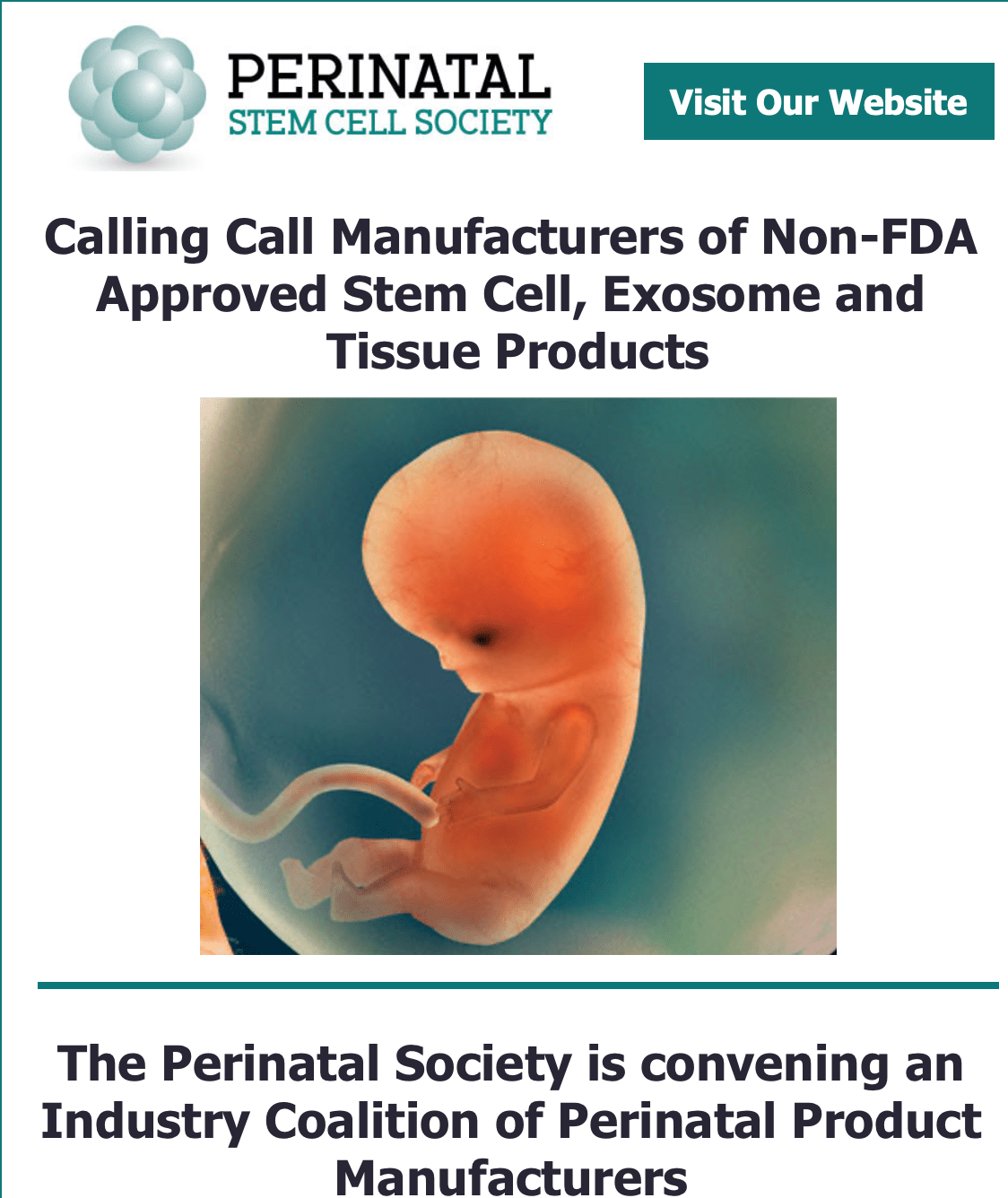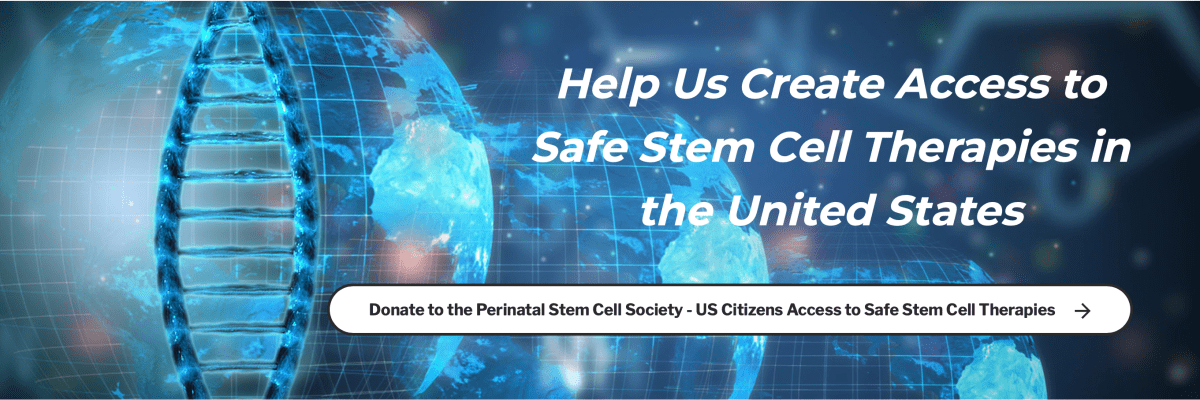I recently interviewed Kyle Cetrulo of the Perinatal Stem Cell Society. This organization seeks to catalyze big changes in stem cell use and clinical trials in the U.S.
In the interview, we touched on many topics including FDA oversight of the cell therapy space. Some of this discussion was in reaction to the new Utah stem cell law that conflicts with federal law and FDA regulations. I had seen Cetrulo on LinkedIn talking about this law as a generally positive step.
There was also an email he sent out around the same time that seemed like a call to action.
In today’s post, I discuss my concerns about some of his answers in the interview and the ideas behind them.

What is the Perinatal Stem Cell Society?
First, what is Cetrulo’s organization? I couldn’t find out too much about the Perinatal Stem Cell Society outside of its webpage and statements by Cetrulo. It seems to be an organization looking to increase access to birth-related stem cells. You can see some of their webpage material included in today’s post. While they use the word “safe” there, I do have concerns about their efforts leading to increased access to cells that are not yet proven safe.
By email, I asked him who else was in his organization. I didn’t get any specific names so it makes me wonder if it’s mainly just him so far as the leader.
The organization’s website has no other names of leaders or members. I also found no other members or leaders of the Perinatal Stem Cell Society on LinkedIn.
That makes me uneasy.
As a side note, I found it interesting that their email blast contained an image that seemed intended to be a human fetus. Is that an actual picture or an illustration?
Increasing access to unproven cells?
One of the main ideas Cetrulo supported in the interview is allowing charging for clinical trial participation. Charging people just for trial participation is a recipe for more profiteering in my view. It’s already happening under the current system but making it explicitly kosher to charge in that context will encourage more dubious “trials” that take large amounts of money from vulnerable patients. I don’t get the impression that Cetrulo would want that to happen but relaxed rules can be exploited by some.
Another concern is that I also don’t believe that the Perinatal Stem Cell Society is currently positioned to be the one certifying products or organizations in our field. As noted earlier, it’s not clear who is in this society or its full leadership. That could change over time.
In addition, the idea of having state and potentially federal laws that in my view might weaken oversight of the cell therapy arena seems highly risky. There already isn’t enough oversight by the FDA as it is.

More from my interview with Perinatal Stem Cell Society leader
Going into the email Q&A with Cetrulo, I had thought he might advocate for some stem cell clinics or suppliers, but he didn’t, which I thought was notable.
I also wondered if he realized the scope of the stem cell clinic problem and how some clinics manipulate the system for marketing. For example, he seemed somewhat surprised when I said that clinics have many non-traditional, pay-for-play trial listings on Clinicaltrials.gov. These “trials” seem predominantly designed to make money from patients. I have serious doubts about whether there is any significant chance of benefit from such “trials.” We can’t be sure about safety either.
Cetrulo seemed more focused on legit clinical trials but again there can be unintended consequences from changes to the current system including those related to charging.
Further, I’m not sure how much he acknowledges risks with the Japanese system that, for example, Doug Sipp, has written about.
Looking ahead
Overall, it seems likely that we’ll see more state laws potentially weakening FDA oversight in coming years. There could even be changes at the federal level.
An overriding problem with the ideas for change and potential laws here is that very few stem cells have been proven safe or effective. For instance, you can’t just broadly assume that perinatal stem cells will be safe. You also shouldn’t assume that people or firms will be good citizens.
In addition, if FDA warning letters related to perinatal stem cells are any indication, many perinatal material suppliers have not used proper CGMP standards during their manufacturing of biological products. This raises the risks of infections in recipients, which we’ve already seen happen such as in the Liveyon case.
Context matters. Nitty gritty details matter.
Related Posts
- SEO Powered Content & PR Distribution. Get Amplified Today.
- PlatoData.Network Vertical Generative Ai. Empower Yourself. Access Here.
- PlatoAiStream. Web3 Intelligence. Knowledge Amplified. Access Here.
- PlatoESG. Carbon, CleanTech, Energy, Environment, Solar, Waste Management. Access Here.
- PlatoHealth. Biotech and Clinical Trials Intelligence. Access Here.
- Source: https://ipscell.com/2024/06/concerns-after-interview-with-kyle-cetrulo-of-perinatal-stem-cell-society/
